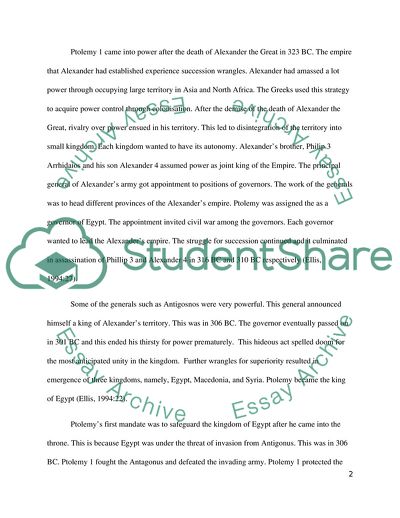Cite this document
(Ptolemy I Soter and His Relationship with Egypt Assignment, n.d.)
Ptolemy I Soter and His Relationship with Egypt Assignment. https://studentshare.org/history/1772159-ptolemy-i-soter-and-his-relationship-with-egypt
Ptolemy I Soter and His Relationship with Egypt Assignment. https://studentshare.org/history/1772159-ptolemy-i-soter-and-his-relationship-with-egypt
(Ptolemy I Soter and His Relationship With Egypt Assignment)
Ptolemy I Soter and His Relationship With Egypt Assignment. https://studentshare.org/history/1772159-ptolemy-i-soter-and-his-relationship-with-egypt.
Ptolemy I Soter and His Relationship With Egypt Assignment. https://studentshare.org/history/1772159-ptolemy-i-soter-and-his-relationship-with-egypt.
“Ptolemy I Soter and His Relationship With Egypt Assignment”. https://studentshare.org/history/1772159-ptolemy-i-soter-and-his-relationship-with-egypt.


